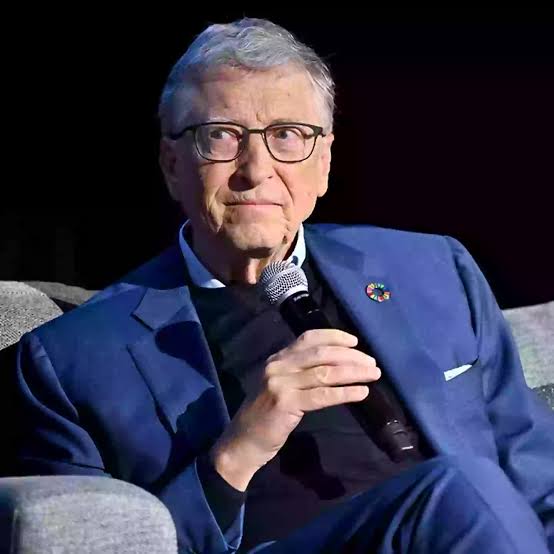AI could replace doctors, teachers soon – Bill Gates
Microsoft co-founder Bill Gates has stated that advances in artificial intelligence over the next decade could diminish the expertise of humans for most tasks.
In an interview with comedian Jimmy Fallon, on NBC’s The Tonight Show in February, the billionaire philanthropist highlighted how AI could take over many aspects of life and work.
Gates noted that, at the moment, expertise remains “rare,” highlighting the continued reliance on human specialists in fields like medicine and education.
“For example, we still depend on highly skilled professionals, such as “a great doctor” or “a great teacher,” whose expertise cannot easily be replaced by AI.
“With AI, over the next decade, that will become free, commonplace — great medical advice, great tutoring,” he said.
In another conversation last month with Harvard professor and happiness expert Arthur Brooks, Gates described the coming era as one of “free intelligence.”
He envisioned AI-powered technology becoming widely accessible, transforming industries by offering improved medical diagnostics, advanced educational tools, and virtual assistants.
“It’s very profound and even a little bit scary — because it’s happening very quickly, and there is no upper bound,” Gates told Brooks.
While AI’s rapid growth raises concerns, its potential to enhance human lives remains significant.
Discussions continue about how humans will adapt to an AI-driven future.
Some experts argue that AI will serve as a complement to human work rather than a replacement, boosting efficiency and fostering economic growth. Others, such as Microsoft AI CEO Mustafa Suleyman, warn that AI advancements could lead to widespread disruption.
“These tools will only temporarily augment human intelligence,” Suleyman wrote in his 2023 book, The Coming Wave, emphasizing that AI is ultimately “labour replacing.”
Despite these concerns, Gates remains optimistic about AI’s benefits.
He has highlighted its potential for breakthroughs in medical research, climate change solutions, and accessible education.
During his interview with Fallon, he pointed out that while AI may dominate fields like manufacturing and agriculture, certain human experiences will remain irreplaceable.
“There will be some things we reserve for ourselves,” he said, referencing activities like playing baseball.
Acknowledging valid concerns about AI’s current flaws—such as misinformation and errors—Gates emphasised the importance of responsible development.
If he were starting a new company today, he would build an “AI-centric” business, he told CNBC in September 2024.
Encouraging young innovators, he said, “I’m encouraging young people at Microsoft, OpenAI, wherever I find them: ‘Hey, here’s the frontier.’ Because you’re taking a fresher look at this than I am, and that’s your fantastic opportunity.”
Gates has long recognised AI’s potential. Back in 2017, he identified artificial intelligence as the most promising field for a startup, noting its rapid progress.
At a Columbia University event with Warren Buffett, he called AI research “profound,” citing DeepMind’s success in mastering the game Go. By 2023, AI’s development had surpassed even his expectations.
OpenAI accomplished a challenge he set—creating a model capable of excelling at AP Biology—far sooner than he had anticipated.
“They finished it in just a few months,” he wrote, calling it “the most important advance in technology since the graphical user interface in 1980”.
Follow the Neptune Prime channel on WhatsApp:
Do you have breaking news, interview request, opinion, suggestion, or want your event covered? Email us at neptuneprime2233@gmail.com





